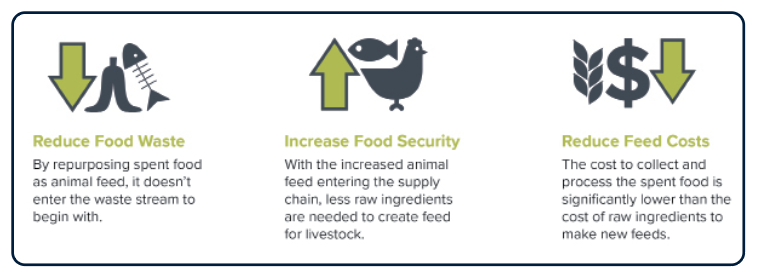The Australian start-up taking on the global food waste problem
Food waste is a monumental problem. The UN Food and Agriculture Organization (FAO) says almost a third of food is wasted globally, even as significant numbers of the world’s population struggle to feed themselves.
BRANDVOICE – SPECIAL FEATURE

As in most countries, food waste has assumed alarming proportions in Australia, with government data estimating 7.6 million tonnes of waste across the supply chain annually. Most of it ends up in landfills and generates methane, contributing to about 8% of the world’s greenhouse gas emissions and over 3% of Australia’s greenhouse gas emissions.
Solving this vexed issue has been a priority for researchers and experts for decades, given the enormous economic and environmental benefits of diverting waste from landfills, reducing the impact of emissions on climate and more efficient use of land and water.
One of the pioneers in this field has been an Australian start-up called Food Recycle, which has developed technology to collect commercial food waste of varying compositions and convert it into a complete animal feed mix.
“It’s all about making the best use of this material. And that is food being used for food, just a little bit further down the food chain,” says Norm Boyle, the founder and CEO of Food Recycle and the inventor of its patented technology.
Double benefits

Food Recycle’s process takes in food waste from commercial establishments like hotels, restaurants, cafes, supermarkets and abattoirs, and turns it into dehydrated, granular feed made to specific nutrient formulations.
That represents a breakthrough for a global waste problem costing US$1 trillion a year. FAO estimates the world will need to increase food production by 70% by 2050 to feed its hungry, despite resources already stretched to capacity.
The solution also addresses the growing problem of animal feed in Australia and around the world.
“The poultry industry alone uses 4 to 5 million tonnes of feed a year. If we can replace the raw ingredients that go into making up this feed, just in Australia, you’re talking about putting 2 million tonnes of wheat back in the food chain for humans,” Boyle says.
The technology is proven through a pilot facility that produces small runs of complete animal feed from waste. Food Recycle collaborated with the University of New England, Poultry Hub Australia and the Commonwealth Scientific and Industrial Research Organisation (CSIRO) to conduct four separate feed trials.
Market Ready
Boyle initially came up with the idea of turning food waste into animal feed years ago while working with fruit orchards in regional New South Wales. Some three decades later, he expanded that idea into a patent and proof-of-concept, with backing from Western Sydney University.
“The market was ready, but the language out there was also about recycling and global warming. I’ve never been in the industry when there was so much discussion about this type of problem,” Boyle says.
Food Recycle launched in 2017 and, after years of research and development, is now looking to boost the adoption of its technology through commercialisation and building out a licensing model.
It plans to develop several production facilities across Australia and New Zealand, each with a 100-tonne output capacity costing $US22.5 million. There won’t be a licensing fee, but it will charge a royalty on the feed produced.
It aims to appoint a licensee for the ANZ region by year-end and targeting a production facility in every state and territory within five years. The group’s international division will simultaneously consider global licensing opportunities.
It’s also taking a longer-term view on the business by raising up to $3 million on the equity crowd-funding site Swarmer for further R&D and the engineering component of its production units. “This will allow us to bring the public along to some extent. They can participate in the food recycling outcomes here and go on the journey with us,” Boyle says.